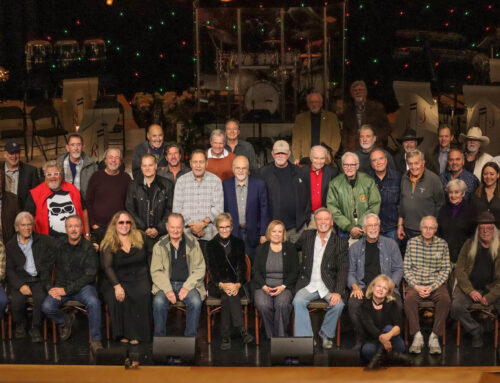What songwriters can do to improve their negotiating strength in an entertainment deal
A very common theme among my songwriter and artist clients is the subject of how they were “ripped off” by their record label and/or music publisher (for purposes of this general publication, I’ll refrain from using the actual, more vivid terms often used to describe the process!). They often feel as if they have not received the benefit of the bargain.
As an attorney who negotiates deals for these types of clients on a routine basis, however, I am frequently placed in the precarious position of walking a tightrope between trying to obtain as many concessions as possible from the opposing party while not pushing so hard as to, in my clients’ words, “blow the deal.” My clients want the best deal possible, but are very rarely willing to walk away from a deal if the terms and concessions are not good. As any good negotiator can tell you, your deal is only as good as your best alternative to the negotiated deal.
In some ways, this willingness to settle for less in order to salvage the deal feeds the very beasts songwriters and artists need to tame, i.e., the record companies and music publishers. Artist think that record companies have the ability to give them instant stardom – in fact, that is the dream of almost every struggling songwriter and entertainer. On the opposite end of the spectrum, however, record companies most certainly know that many artists are willing to “sell their soul” in order to obtain a deal.
The infamous controlled composition clause is the perfect example of how far an artist is willing to go for “the deal.” The United States government requires that a copyright owner be paid a minimum statutory rate for the mechanical reproduction of their creative work. The record label, however, turns to the artist and says, “Despite the government minimum, will you consent to accept only seventy-five percent of that to which we’re required to pay in order to get a deal?” “Furthermore,” the record label says, “we’ll only pay you seventy-five percent of statutory rate on ten compositions, no more, o.k.?” As incredulous as those questions might sound, the majority of artists throughout the history of the controlled composition clause have answered “yes” to those questions. From the record companies’ perspective, this negotiation process is just good business.
This disregard for the government’s requirements does not often occur in other industries outside of the music industry. If a company interviewing a potential employee suggested that the employee agree to an hourly rate that is less that the minimum wage, the employee would balk, and most likely the company would be reported and fined. The difference, of course, is that the employee in this scenario has a multitude of alternatives, as there are numerous companies to which he or she can apply that will pay minimum wage. That is not the case, of course, with entertainers. It has been said one’s odds of getting struck by lightning are greater than the odds of getting a record deal! Most entertainers are desperate for “the deal.”
So, the question then becomes “What is the deal worth to the songwriter or the artist?” Is it worth giving up possession of your songs without the possibility of reversion in order to receive a monthly draw in order to get that publishing deal? Is it worth giving up twenty-five cents on every mechanical dollar earned in order to receive a cash advance and the remote possibility of future royalties from a major label in order to get that record deal? If the songwriter or artist has no alternatives, then the answer to those questions may very well be yes. Or, it may be that no deal is worth giving up such concessions. The answers to these questions are as diverse and individual as the artists and their particular situations.
In order to better understand their own position, then, songwriters and artists should carefully consider their “sacred cows”– i.e., the points on which there is no negotiation – prior to entering negotiations. The difference I have witnessed between fresh young songwriters and experienced writers who have been around the Row for a while is the wisdom to know what is important to them and what is not. If a songwriter has a young child, she is likely to be more willing to walk away from a deal without a reversion clause than is a single songwriter with no family obligations. The recording artist who has a track record of selling more records the first time out than any other artist is in a better position to walk away from a deal that includes a controlled composition clause. The potential recording artist who has offers from three major labels is in a better position to obtain a higher royalty rate than the artist who has been offered a development deal.
The point is, the songwriter and the artist should think about what is important to them in terms of a deal and carefully consider their “bottom line,” the point at which they are willing to say “”no deal.” These issues should be discussed with an experienced entertainment attorney. Develop two lists with your attorney: (1) a wish list of provisions for improving the deal and (2) a “drop dead” list of items which must be included in the agreement or the deal is off, which hopefully includes a good alternative to the negotiated deal. Remember, the more alternatives a person has to the deal in hand, the better his or her negotiating strength.
This article originally appeared in the print edition of Law on the Row, Volume 2, Issue 1, on March 21, 2001.






